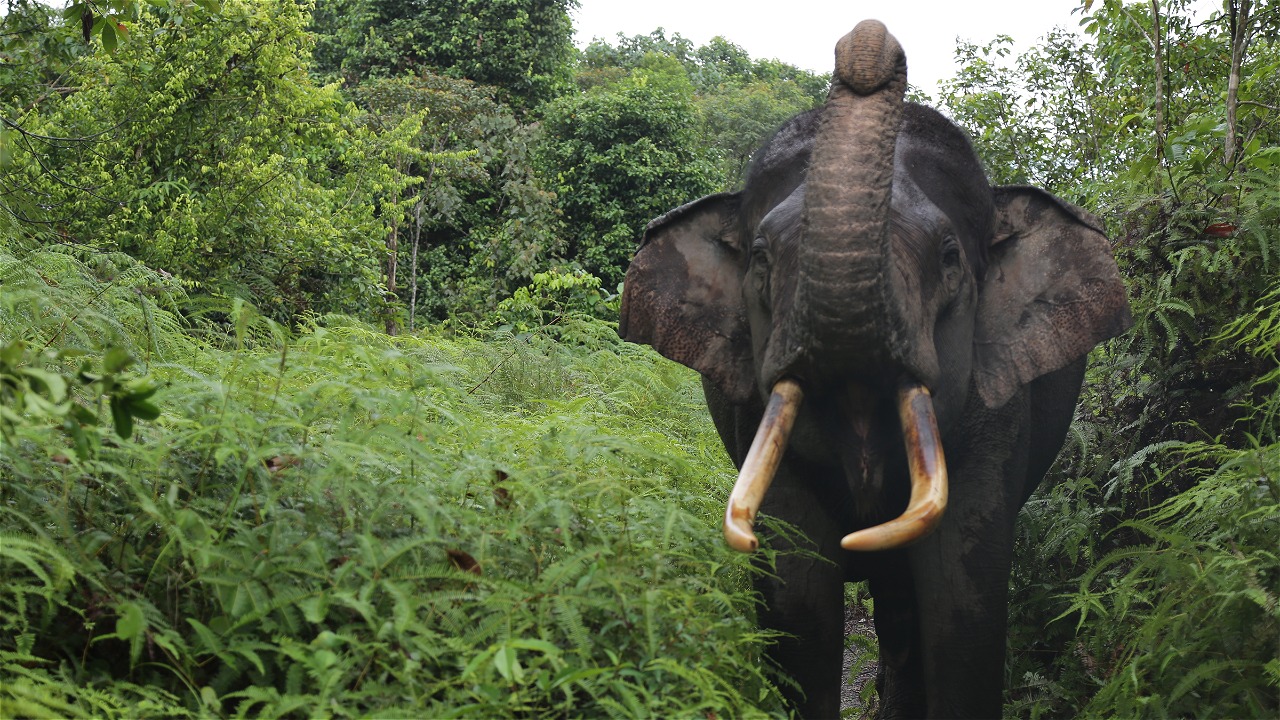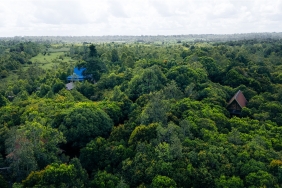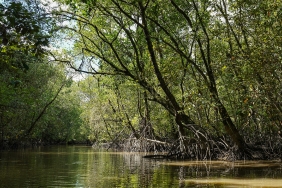THE THREATENED "LONG TRUNK"
By: Hijrah Nasir
The Sumatran elephant population has declined in recent decades due to habitat shrinkage due to land conversion, high rates of poaching and trade, and human-elephant conflict. Several important elephant habitats, such as Gunung Leuser National Park, Tesso Nilo National Park, Bukit Barisan Selatan National Park, and Way Kambas National Park are experiencing various pressures that threaten the existence of Sumatran elephants.
As one of the most important Sumatran elephant conservation areas, Bukit Barisan Selatan National Park experiences the same threat. The distribution of Sumatran elephants based on the results of camera trap analysis and SMART Database conducted by WWF Indonesia in collaboration with BBTNBBS are Lombok Resort, Balik Bukit, Balai Kencana, Biha, Ngambur, Pemerihan, Sukaraja, Way Haru, and Way Nipah. However, the high rate of deforestation in the area over the past few decades poses a serious threat to their existence. As an animal that requires a very large home range of up to 20 square kilometers per day, the narrowing of their home range is certainly a serious threat that has resulted in human - elephant conflicts occurring in villages bordering the National Park.
According to data from WWF Indonesia, during 2016 human-elephant conflicts in TNBBS occurred 49 times in 4 resorts with the highest frequency occurring in Pemerihan Resort 27 times, followed by Sukaraja Resort 14 times, Way Nipah Resort 5 times, and Biha Resort 3 times. During the period between January - March 2017, there were various complaints from the public about the frequency of conflicts between elephants and humans in Pemerihan and Sukaraja resorts.
Another threat is poaching and ivory trade. In patrols conducted by WWF, Balai TNBBS, and WCS, during June 2016 - July 2017, 9 dead elephants were found within the TNBBS area. Weak law enforcement for poachers does not provide a deterrent effect for them.
Unraveling the above problems requires the participation of all parties. Providing an understanding to the public about the importance of elephant conservation is something that needs to be done in the midst of various problems that threaten the conservation of Sumatran elephants. Therefore, in order to increase public awareness of the importance of elephant conservation, WWF Indonesia in collaboration with the Forestry Student Association and students of the Biology Department of Lampung University held a campaign to commemorate World Elephant Day 2017 at the car free day, Gajah Roundabout, Bandar Lampung.
The campaign aimed to raise public awareness about the condition of elephants and the conservation efforts that need to be done. In addition to the poster campaign, there was also a photo exhibition and performance from the Lampung violin community as well as the collection of petitions for elephant conservation. The petitions collected will then be used for advocacy to the government to support more serious elephant conservation efforts. We invite the public to mobilize action to care about #nasibgajah.





